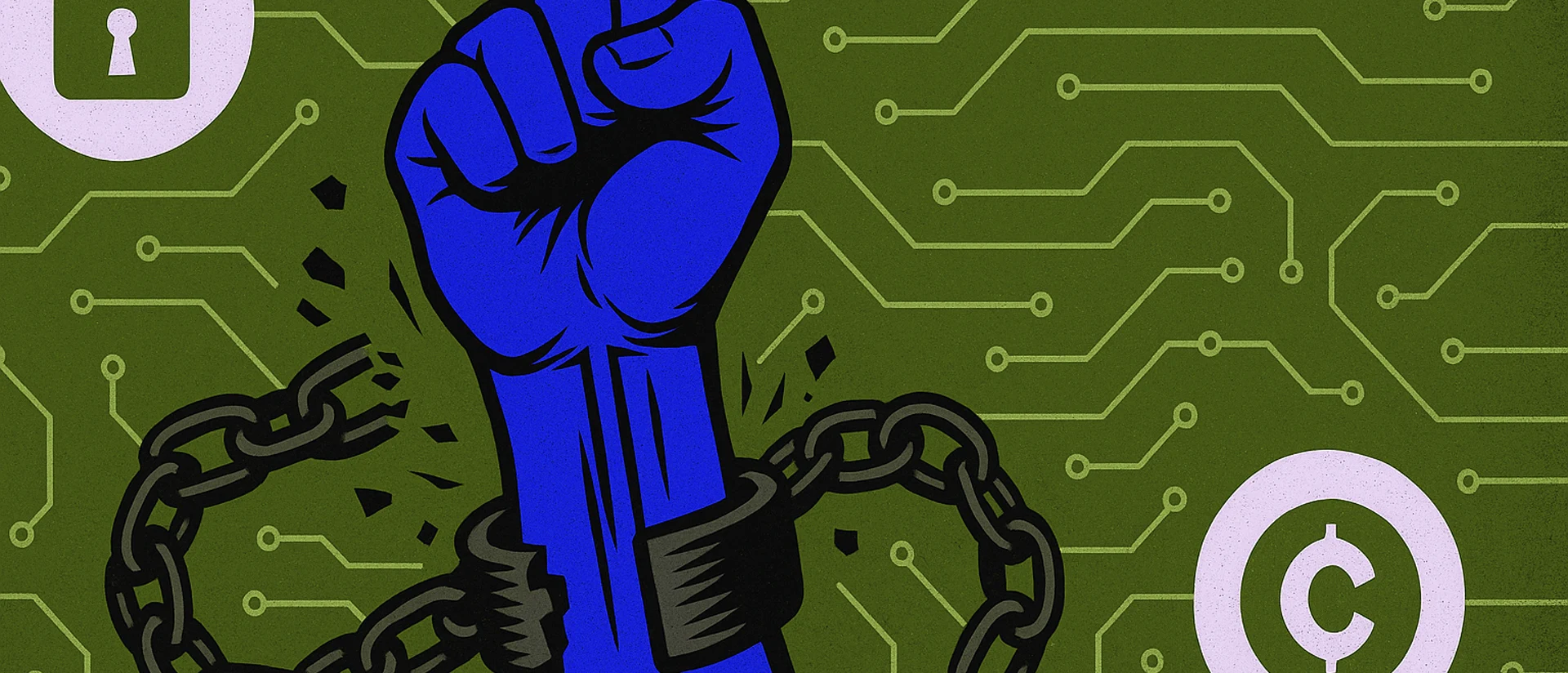While the state weaponizes compliance, we must weaponize freedom
On June 18th, while the country was distracted with headlines about Trump and Iran, the U.S. Senate quietly advanced the GENIUS Act—a bill designed to “legitimize” stablecoins, but in reality, it paves the way for a permissioned, surveilled, and tightly controlled digital currency regime.
We predicted this.
Back in our piece titled “The Great CBDC Bait-and-Switch”, we warned that stablecoins would be used as a Trojan horse to usher in the exact same kind of financial surveillance grid promised by central bank digital currencies (CBDCs). And now, here we are.
Framed as a regulatory win for innovation, the GENIUS Act does far more than set rules. It effectively mandates that all legal stablecoins be fully backed, regularly audited, and integrated into the surveillance machinery of the U.S. state. Only “permitted payment stablecoin issuers” may operate, and those issuers must comply with extensive oversight under the Bank Secrecy Act, including KYC, AML, and sanctions enforcement.
In other words: no privacy, no independence, and no dissent.
The Act even instructs the Treasury Department to evaluate new financial surveillance tech, including AI-powered monitoring systems and blockchain analysis tools. These technologies, we’re told, will help “assess privacy risks” —as if privacy itself is the threat.
Let’s be honest about what this really is: a nationalized control grid disguised as modernization.
The old CBDC fear? It just got a fresh coat of paint and a bipartisan smile. Republicans and Democrats alike are pushing the GENIUS Act, pretending it’s a win for decentralization. But these stablecoins aren’t free-market crypto. They’re government-approved, heavily surveilled, and programmable currencies that can be frozen, tracked, and weaponized at any moment.
As we wrote before:
“The state doesn’t need to build a CBDC from scratch when it can co-opt a private system that functions identically—just with a more palatable image for the freedom-loving crowd.”
Now it’s happening. The same regime that dropped the CTR threshold to $200 in border towns—surveilling people for withdrawing petty cash—will absolutely leverage these new rules to microtrack every digital transaction.
That’s why privacy coins like Zano and Monero are more important than ever. These tools weren’t made for speculation. They were made for survival. For sovereignty. For opting out of the financial panopticon that Congress is trying to normalize.
Zano is private by default, decentralized by design, and immune to backdoor compliance. It’s no wonder the same people trying to cage stablecoin use are also targeting privacy-focused projects. They fear freedom because it disrupts control.
The GENIUS Act is not the end of the financial surveillance agenda. It’s the next phase. And anyone still clinging to the idea that regulated stablecoins are “better than CBDCs” needs to take a long, hard look at the fine print.
But the good news? People are waking up. They’re seeing through the bait-and-switch. And with every new law passed in the name of safety, more people are realizing that freedom is the only safe bet.
That’s why Zano’s approach stands out—not just as a critique of the system, but as a working alternative. Zano is actively building the financial tools we need to exit the surveillance paradigm, and one of the most impressive is their decentralized stablecoin: the Freedom Dollar, cleverly abbreviated as fUSD. Unlike government-approved stablecoins that rely on centralized issuers and KYC compliance, fUSD is a censorship-resistant, algorithmically stabilized protocol that runs directly on the Zano blockchain. It has no CEO, no company behind it, and no choke point for regulators to seize.
fUSD is digital autonomy in action. It’s governed by code, stabilized through market forces, and secured by Zano’s privacy-first architecture. There’s no backdoor to hand over user data, no permission required to transact, and no threat of deplatforming. This is what a real financial countermeasure to tyranny looks like. While the state weaponizes compliance, Zano is weaponizing freedom—and that’s why they fear it.
Financial freedom isn’t a crime. It’s a necessity.
We may be outgunned, but we’re not outnumbered. And in the end, freedom will win this arms race—because the truth can’t be regulated.







